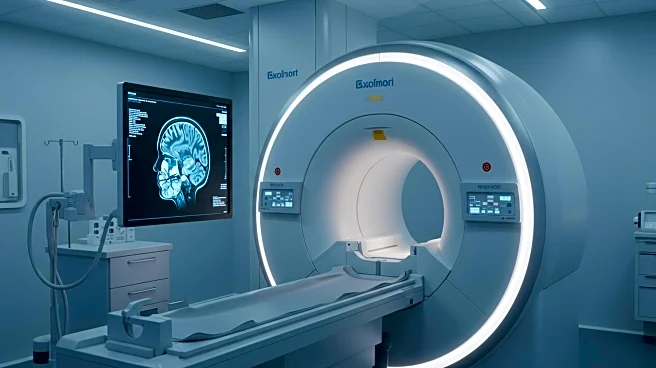What's Happening?
A new study has introduced an advanced framework for classifying brain MRI images, aiming to improve the detection of brain tumors. The framework integrates Tuned Single-Scale Retinex (TSSR) and Empirical Wavelet Transform (EWT) with statistical measures like energy and entropy to enhance diagnostic accuracy. This approach addresses the challenges faced by existing computer-aided detection techniques, such as high computational demands and sensitivity to dataset size. The study highlights the effectiveness of the TSSR method in enhancing image contrast and brightness without losing fine details, which is crucial for accurate tumor detection. The framework's performance was validated using various wavelet basis functions and benchmarked against traditional methods, showing significant improvements in classification accuracy.
Why It's Important?
The development of this novel framework is significant as it offers a more robust and scalable solution for brain tumor detection, a critical area in medical diagnostics. By improving the accuracy of MRI image classification, this method could lead to earlier and more reliable detection of brain tumors, potentially improving patient outcomes. The integration of advanced image processing techniques like TSSR and EWT represents a step forward in medical imaging technology, which could be applied to other areas of healthcare diagnostics. This advancement may also reduce the reliance on feature engineering and computational resources, making it more accessible for widespread clinical use.
What's Next?
Future research may focus on further refining the framework to enhance its robustness and scalability. This could involve testing the framework on larger and more diverse datasets to ensure its applicability across different patient demographics and tumor types. Additionally, integrating this framework into existing medical imaging systems could be explored to facilitate its adoption in clinical settings. Collaboration with healthcare providers and technology developers may be necessary to optimize the framework for real-world applications.
Beyond the Headlines
The ethical implications of using advanced AI-driven frameworks in medical diagnostics should be considered, particularly regarding patient privacy and data security. Ensuring that these technologies are used responsibly and transparently will be crucial as they become more integrated into healthcare systems. Additionally, the potential for such frameworks to reduce healthcare disparities by providing more accurate diagnostics in underserved areas could be a significant societal benefit.










